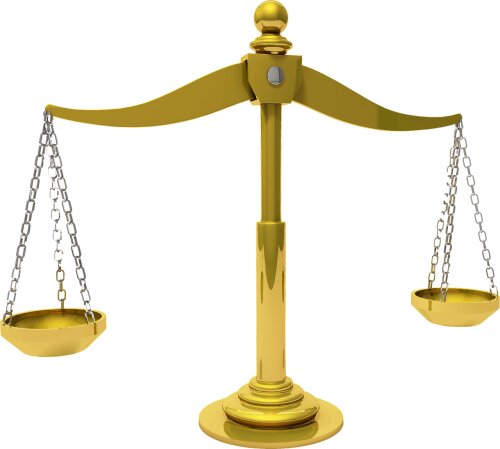Best Child Abuse Lawyers in Mthatha
Share your needs with us, get contacted by law firms.
Free. Takes 2 min.
Free Guide to Hiring a Family Lawyer
List of the best lawyers in Mthatha, South Africa
About Child Abuse Law in Mthatha, South Africa
Child abuse in Mthatha, South Africa, encompasses any harm or mistreatment of a person under the age of 18. This can include physical, emotional, and sexual abuse, as well as neglect. In Mthatha, like elsewhere in South Africa, child protection is a crucial issue, governed by both national and provincial laws designed to safeguard the welfare and rights of children. The South African Constitution and various child protection laws provide a framework for preventing and addressing child abuse through protective services, legal enforcement, and community support.
Why You May Need a Lawyer
There are several situations where obtaining legal assistance might be necessary when dealing with child abuse in Mthatha:
- If you are a parent wrongfully accused of abuse and need to clear your name and regain custody or visitation rights.
- If you suspect a child is being abused and are seeking to understand the legal processes to report and protect the child.
- If you are a professional, such as a teacher or social worker, looking for guidance on your responsibilities to report abuse.
- If you are directly affected or a family member of a victim seeking justice and compensation.
Legal assistance can help you navigate these complex issues with the expertise to ensure the best outcomes for the child involved.
Local Laws Overview
In Mthatha, child abuse is addressed through various national laws and local policies. Key pieces of legislation include the Children’s Act of 2005, which mandates the protection and care of children, and the Sexual Offenses Act, which addresses sexual crimes against minors. These laws provide mechanisms for reporting abuse, outlining how cases should be handled and prosecuted. Additionally, local child protection units work alongside community organizations to enforce these laws and educate the public on their rights and responsibilities.
Frequently Asked Questions
What constitutes child abuse under South African law?
Child abuse includes various forms of harm, such as physical injury, emotional abuse, sexual exploitation, and neglect, where a child's basic needs are not met.
What should I do if I suspect a child is being abused?
Report your suspicions to the nearest police station or a social worker. The Children’s Act requires professionals working with children to report suspected abuse.
Can I remain anonymous when reporting child abuse?
Yes, you can choose to remain anonymous when reporting suspected child abuse to protect your identity.
What are the potential legal consequences for someone convicted of child abuse in Mthatha?
Consequences can include prison sentences, fines, and a criminal record, depending on the severity of the abuse. The courts focus on rehabilitation and protection for the child.
How does the legal system support child victims during court proceedings?
Children may receive support from social workers and child advocates, and efforts are made to minimize trauma through special arrangements like testifying in separate rooms via video link.
Who is responsible for enforcing child protection in Mthatha?
Law enforcement, social services, and non-governmental organizations work collaboratively to enforce child protection laws and provide services to affected families.
Is there a statute of limitations on reporting child abuse?
While many cases are best handled promptly, certain offenses, especially sexual abuse, may be reported at any time due to their serious nature.
What role do social workers play in child abuse cases?
Social workers assess the child's safety, provide necessary interventions, and coordinate with legal and healthcare professionals to support the family.
What is the first legal step once child abuse is reported?
After reporting, the case is typically investigated by law enforcement and social services, who then determine the need for legal proceedings.
Are there support services available for children who have been abused?
Yes, numerous support services offer counseling, legal assistance, and intervention programs to help children heal and adjust following abuse.
Additional Resources
Several resources and organizations can provide support and guidance in Mthatha:
- The Department of Social Development: Offers support and intervention services.
- National Child Protection Hotline: Provides immediate assistance and advice.
- Childline South Africa: Offers counseling and support for child victims and families.
- Local non-profit organizations: Engage in advocacy and support for child welfare.
Next Steps
If you need legal assistance regarding child abuse in Mthatha, consider the following steps:
- Contact a legal expert specializing in family and child protection law to understand your rights and options.
- Gather and document any evidence or relevant information that may be useful for your case.
- Reach out to local support services for immediate assistance and counseling, if necessary.
- Follow any legal advice and stay informed about your case and the legal processes involved.
The safety and wellbeing of the child should be the utmost priority, and seeking the right legal assistance can make a significant difference in the outcome of these sensitive situations.
Lawzana helps you find the best lawyers and law firms in Mthatha through a curated and pre-screened list of qualified legal professionals. Our platform offers rankings and detailed profiles of attorneys and law firms, allowing you to compare based on practice areas, including Child Abuse, experience, and client feedback.
Each profile includes a description of the firm's areas of practice, client reviews, team members and partners, year of establishment, spoken languages, office locations, contact information, social media presence, and any published articles or resources. Most firms on our platform speak English and are experienced in both local and international legal matters.
Get a quote from top-rated law firms in Mthatha, South Africa — quickly, securely, and without unnecessary hassle.
Disclaimer:
The information provided on this page is for general informational purposes only and does not constitute legal advice. While we strive to ensure the accuracy and relevance of the content, legal information may change over time, and interpretations of the law can vary. You should always consult with a qualified legal professional for advice specific to your situation.
We disclaim all liability for actions taken or not taken based on the content of this page. If you believe any information is incorrect or outdated, please contact us, and we will review and update it where appropriate.









